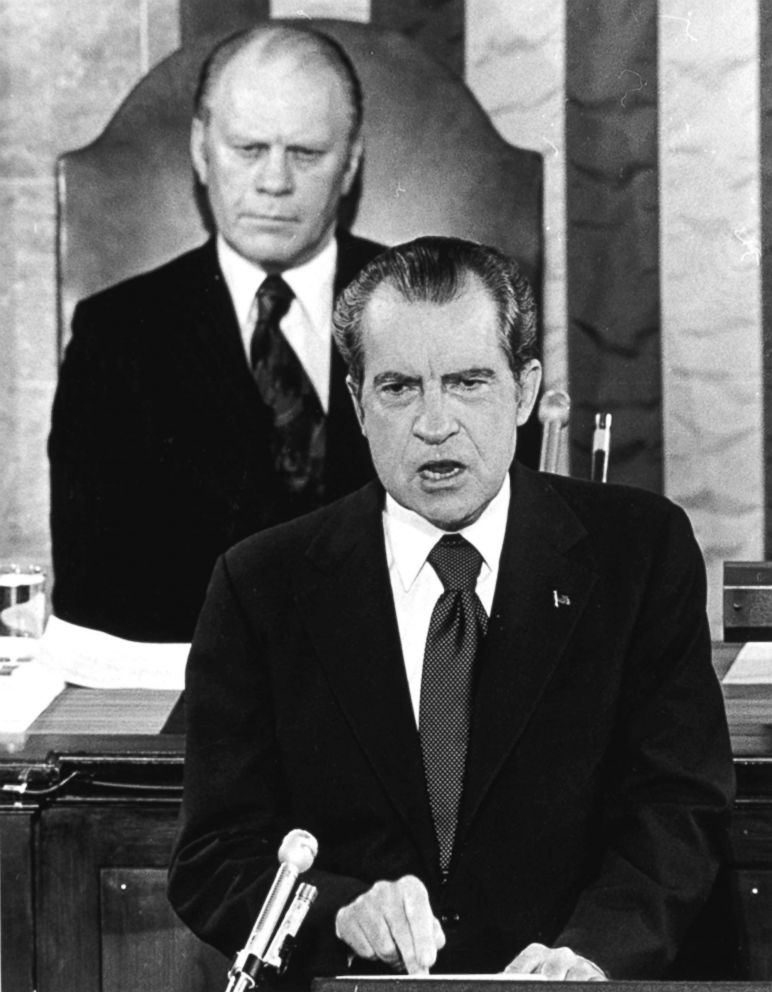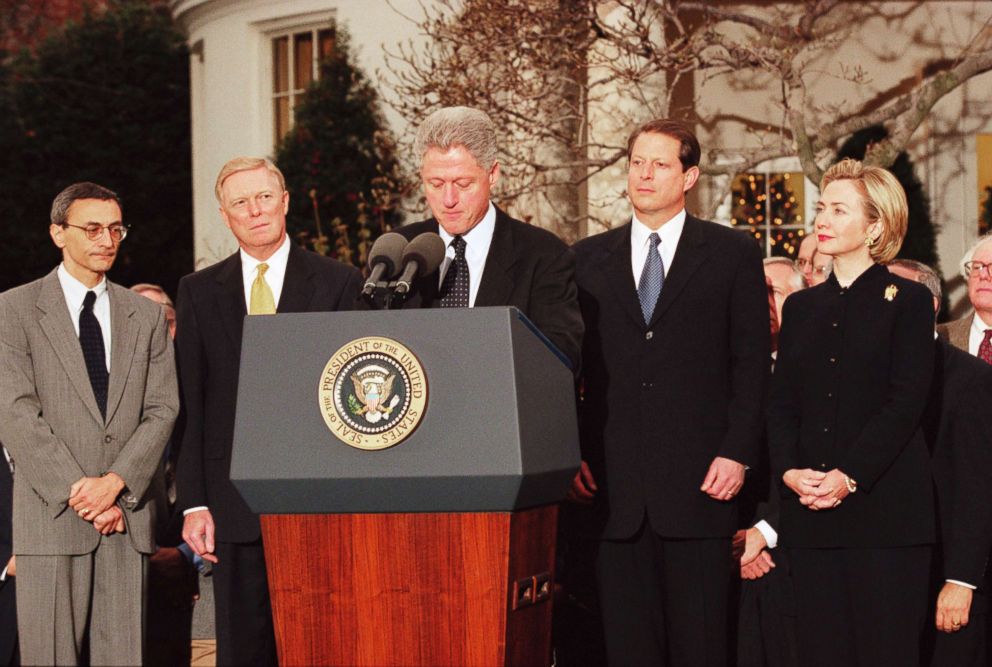Trump White House not alone in facing a high-profile investigation
From Nixon to Trump, how presidents faced high-profile probes.
The Trump White House is hardly alone in having to deal with a high-profile and distracting investigation. The Nixon, Reagan, and Clinton administrations all faced pressure from an independent or special counsel during the Watergate, Iran-Contra, and Whitewater investigations, respectively.
One year into the special counsel’s investigation into possible collusion between Russia and the Trump campaign, the Mueller investigation – like White House investigations of the past – has frustrated the Trump administration and transfixed the public. While new persons of interest and storylines are introduced almost daily, there are some familiar threads.
Take the following scene – fair or not – painted about President Donald Trump: Alone at the White House, Trump fumes about negative television coverage, rants about political enemies and leaks to the press in paranoid conversations with advisors and friends, and calls the investigation a “witch hunt” in Twitter tirades.
With the exception of early morning tweeting – those were all ways former advisors and friends described presidents Richard Nixon and Bill Clinton behind the scenes.

A presidential distraction
White Houses under investigation maintain it's not a distraction but the swirling accusations and constant legal pressure often take a public toll.
In private – and on Twitter – Trump has slammed the work of his own FBI as a ‘witch hunt’ and has raised concerns about how his own friends and associates could be implicated.
On the one year anniversary of the Mueller investigation, Trump tweeted, “Congratulations America, we are now into the second year of the greatest Witch Hunt in American History...and there is still No Collusion and No Obstruction. The only Collusion was that done by Democrats who were unable to win an Election despite the spending of far more money!”
Trump friend and confidant Chris Ruddy said the president's tweets about the investigation are often in reaction to what stories he sees on television.
"I think he sees a lot of tv and there's a hyper-focus on the investigation and the tweets are a reaction to that," Ruddy told ABC. "But when he's with friends, he's often touting poll numbers, or talking about things he's been doing."
As Nixon faced the one-year anniversary of the Watergate scandal, he urged the special prosecutor to end the investigation he privately called a ‘witch hunt’ during his televised 1974 State of the Union speech.
“As you know, I have provided to the Special Prosecutor voluntarily a great deal of material. I believe that I have provided all the material that he needs to conclude his investigations and to proceed to prosecute the guilty and to clear the innocent,” Nixon said. “I believe the time has come to bring that investigation and the other investigations of this matter to an end. One year of Watergate is enough.”
One year into the Mueller investigation the Trump White House has similarly claimed it's been fully cooperative, and the probe into possible collusion with Russia has only been a distraction.
Vice President Mike Pence said in an interview with NBC News that he encourages Mueller’s team to wrap up their investigation soon.
“What I think is that it’s been a year since this investigation began, our administration has provided over a million documents, we’ve fully cooperated in it, and in the interest of the country, I think it’s time to wrap it up. And I would very respectfully encourage the special counsel and his team to bring their work to completion,” Pence said.
The Watergate investigation continued to loom over the Nixon White House for another seven months when the “smoking gun” tapes confirmed Nixon knew about the DNC break-in and he ultimately faced almost-certain impeachment and removal from office.

Investigations take on a 'life of their own'
Like the Watergate scandal and Whitewater, the Mueller probe has gone on to encompass far more than what the investigation initially was designed to discover.
“Each investigation I think has shown us that they will take on a life if their own in a different way,” said Professor Luke Nichter, a Nixon scholar at Texas A&M University. “Watergate started as a simple matter and became a complex national security investigation. The Clinton scandal with Monica Lewinsky – 20 years later it never ends. And with Trump, it’s all so action-packed.”
Mueller’s mandate allows his team of investigators to follow threads even if not directly related to Russia and it’s uncertain where it will lead as it enters its second year.
Watergate began as an investigation into the break-in of the Democratic National Committee offices but soon spread to revelations of more widespread corruption at the White House. The Whitewater scandal began as an investigation into the real estate dealings of the Clintons but then evolved into questions about the suicide of a White House attorney and the Monica Lewinsky scandal.
Potential political ramifications
The Watergate and Lewinsky scandals didn't affect the Nixon or Clinton presidencies until their second terms in office. But for Trump, the Mueller investigation has hung over his head since day one.
"We don’t know whether Trump is a game-changing president in American politics or the fluke beneficiary of an off-beat election," presidential historian Douglas Brinkley said.
"If it wasn’t for the Mueller he would be able to clear the air but right now it’s obfuscated."
Brinkley notes that after one year, the Mueller investigation creates a "conundrum" for Trump and Republicans ahead of the midterm election.
"At any moment, he could be charged with felony or obstruction of justice-- it creates a kind of hesitancy for Republicans wanting to fully embrace his persona," Brinkley said.
Eventually, Nixon resigned and Clinton faced impeachment. One year into the special investigation, Trump does not face any charges of wrongdoing. However, Nichter notes that the scandal has created a potential political problem for Trump and Republicans in the upcoming election.
“Control of Congress is everything,” Nichter said. “When it’s your own party you’re able to contain it.”
“You look at Clinton facing a Republican Congress, Nixon facing a Democratic Congress – if the House flips – what’s going to be the first or second thing they do is pass articles of impeachment,” he said.




